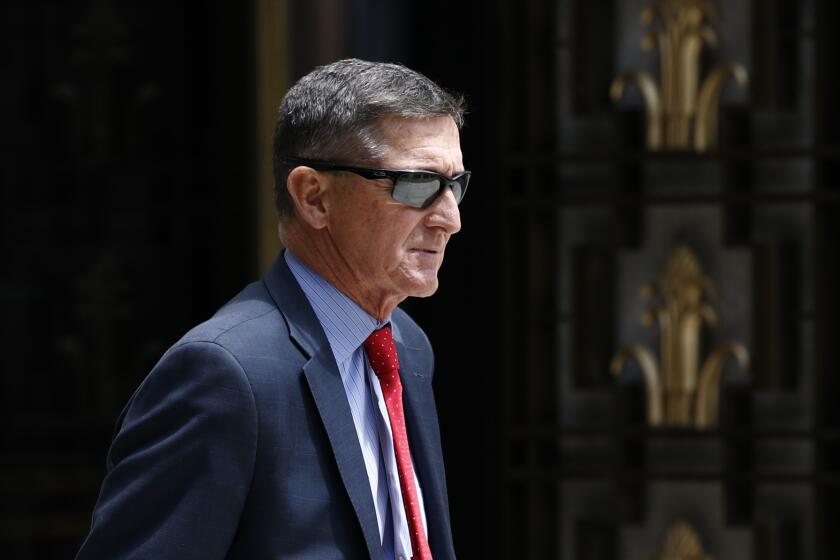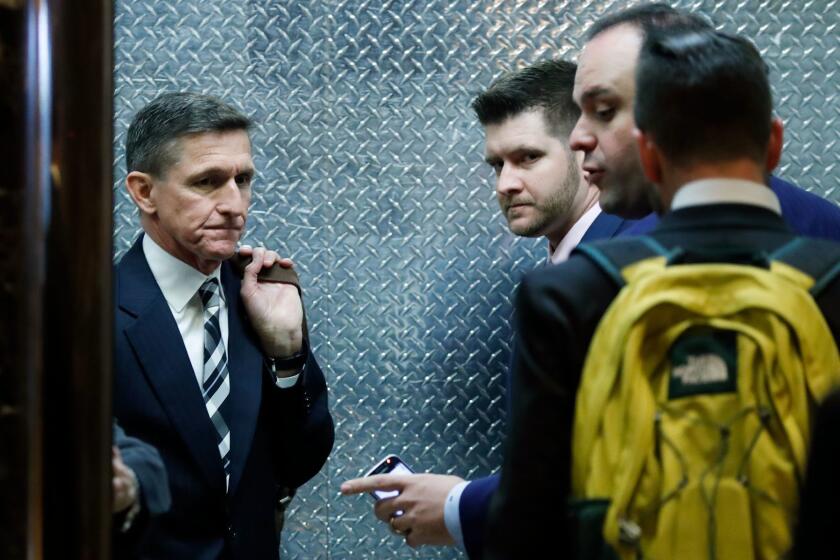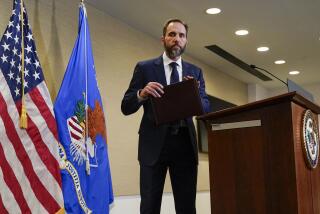Justice Department moves to drop prosecution of Michael Flynn
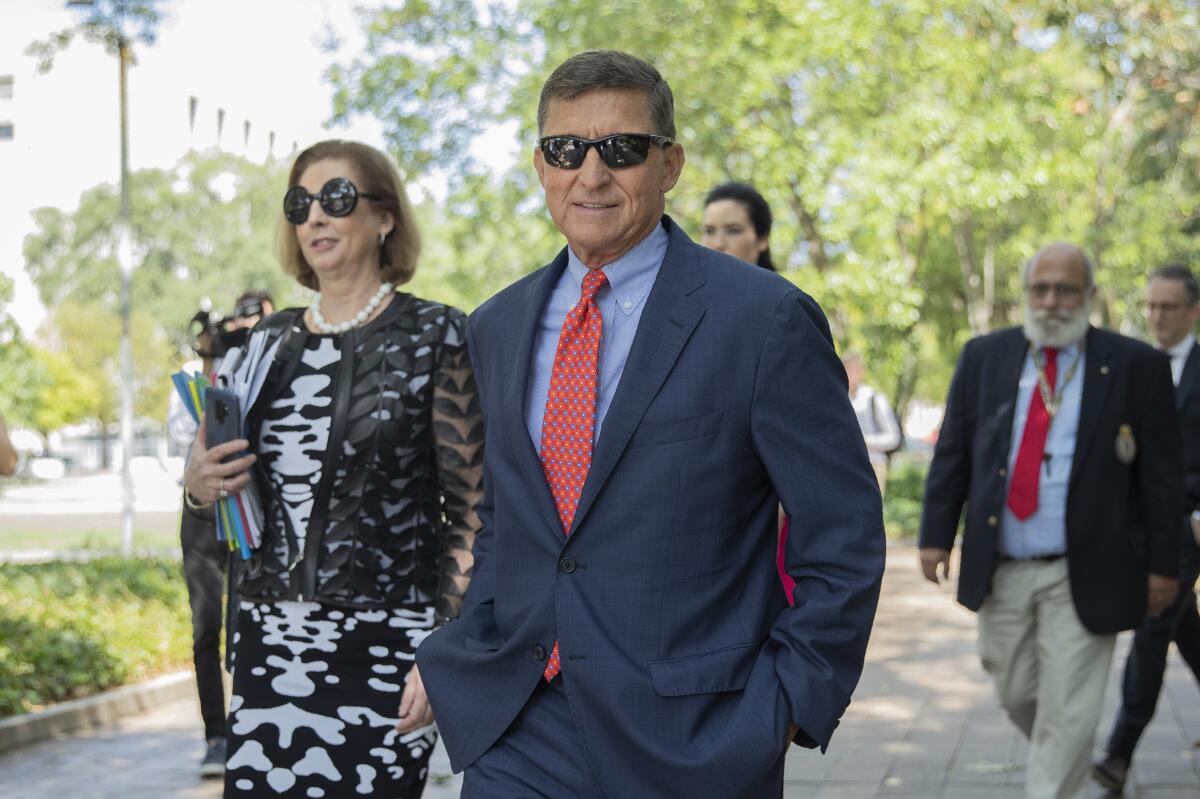
WASHINGTON — The Justice Department moved Thursday to drop its prosecution of Michael Flynn, President Trump’s first national security advisor and the only White House official charged in the Russia investigation, a dramatic undoing of one of the most high-profile cases brought by former special counsel Robert S. Mueller III.
“Continued prosecution of this case would not serve the interests of justice,” Timothy Shea, the U.S. attorney in Washington, wrote in a 20-page court filing that eviscerated the investigation into Flynn, a retired three-star Army general.
Flynn pleaded guilty in 2017 to lying to FBI agents about his phone calls with the Russian ambassador to Washington, shortly before Trump took office, about U.S. sanctions enacted as punishment for Russian meddling in the 2016 presidential campaign.
But Shea wrote that the agents’ interview, conducted at the White House days after Trump’s inauguration, did not have “a legitimate investigative basis” and was “untethered to, and unjustified by, the FBI’s counterintelligence investigation.”
Trump’s first national security advisor, Michael Flynn, pleaded guilty in December 2017 to lying to the FBI in the Russia investigation. But now he insists his case should be thrown out and the alleged injustice has become a rallying cry for Trump supporters.
The abrupt reversal marked a stunning legal victory for Flynn, who has claimed he was a victim of prosecutorial misconduct, and a political vindication for Trump, who fired his top national security aide after only 24 days in office but later insisted he had been framed.
The decision immediately escalated the debate over whether Trump was improperly influencing criminal prosecutions. Critics accused Atty. Gen. William Barr of bowing to pressure in a politically charged case, saying it undermined the Justice Department’s credibility.
Mueller charged 34 people in all, and the Flynn case is the first to collapse. He served no time in jail and has been awaiting sentencing.
Trump’s anger over the Russia investigation hasn’t abated even though it ended a year ago without establishing that his campaign criminally conspired with Moscow to help him win the White House.
He told reporters Thursday in the Oval Office that the law enforcement officials who targeted Flynn were “human scum” and had committed “treason.” He praised Flynn as “an innocent man” and “a great gentleman.”
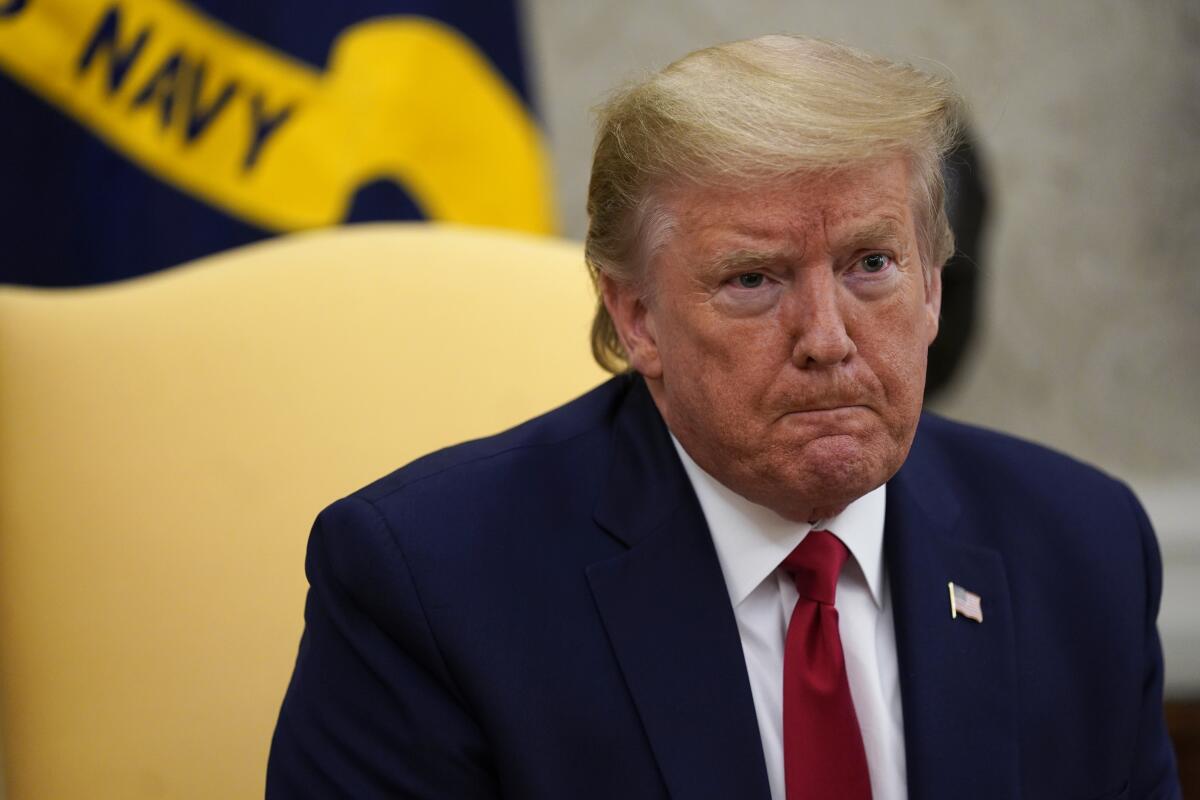
Trump apparently celebrated the news on a phone call with Russian President Vladimir Putin, saying they talked about “the Russia hoax, this absolute dishonest hoax.”
“And we discussed that,” he said. He added, “It was a total disgrace and I wouldn’t be surprised if you see a lot of things happen over the next number of weeks. This is just one piece of a very dishonest puzzle.”
The decision to drop Flynn’s case came as several aftershocks of the Russia investigation hit Washington.
The House Intelligence Committee released thousands of pages of transcripts from its closed-door interviews with 53 individuals. The Justice Department separately asked the Supreme Court to block a request by House Democrats to review secret grand jury material from Mueller’s inquiry.
The case against Flynn first appeared in jeopardy when Brandon Van Grack, who helped lead the Flynn prosecution in Mueller’s office and still works at the Justice Department, abruptly notified the court that he was withdrawing. Shea filed for its dismissal soon after.
Van Grack did not give a reason in his one-sentence filing, but prosecutors have previously withdrawn from cases to protest decisions by their superiors.
In February, several federal prosecutors pulled out of the case against Roger Stone, a longtime political advisor to Trump who was convicted of witness tampering and lying to Congress, after the Justice Department disregarded their request for a stiff sentence.
Trump had publicly complained that their sentencing recommendation was too harsh. Stone was eventually sentenced to 40 months in prison, but he has not been incarcerated and is appealing his conviction.
U.S. District Judge Emmet G. Sullivan, who is overseeing the Flynn case, did not publicly respond to the Justice Department’s motion or set a hearing date.
Nancy Gertner, a Harvard law professor and retired federal judge, expects Sullivan will probe whether “there there was any untoward political influence from the president.”
She said the Justice Department argument that Flynn’s prosecution was substandard could affect other cases where people are charged with lying to investigators.
“The implications of the position they’re taking with Flynn would undermine false statement prosecutions from one end of the country to the other,” she said.
Gertner also suggested that the Justice Department was helping a defendant with friends in high places.
“Are they going to take this same position in the case of the ordinary, non-politically wired individual?” she said. “The answer is no.”
Barr told CBS News in an interview that the Flynn prosecution needed to be dropped to “make sure that we restore confidence in the system.”
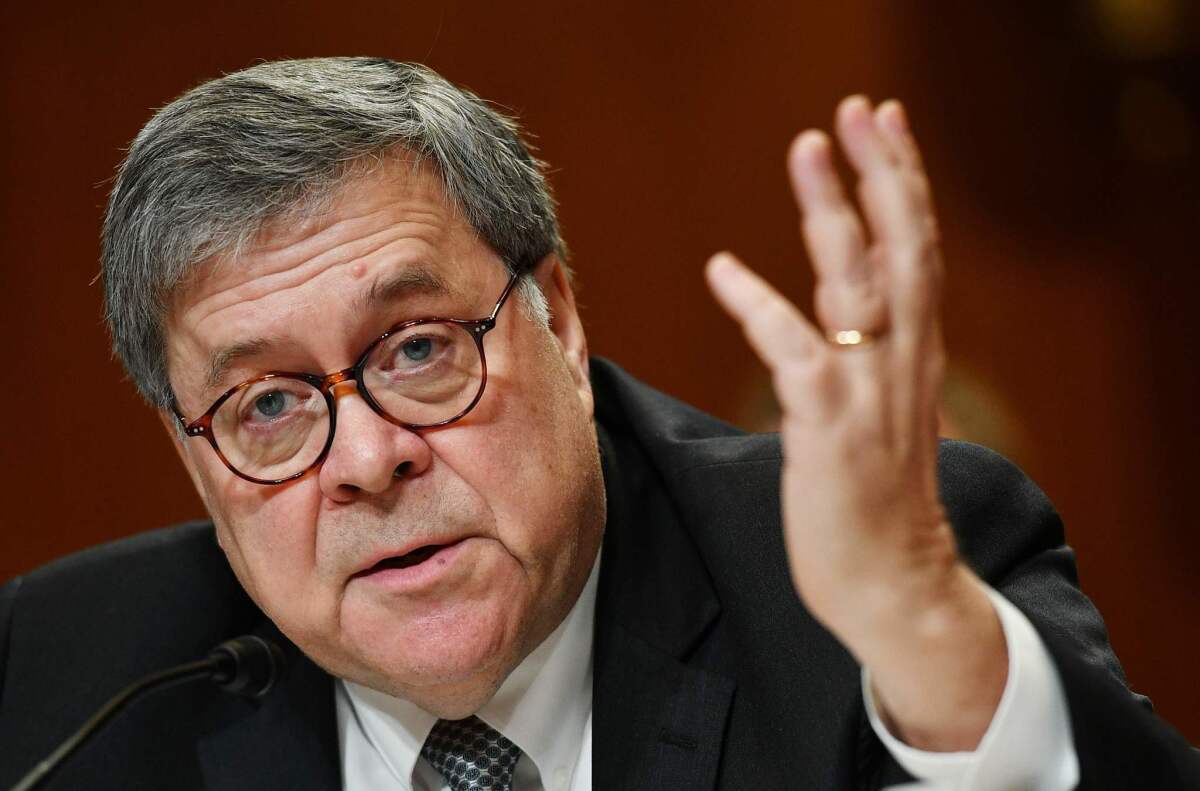
But several former officials in the Russia investigation blasted Barr’s move as tainted by politics.
“Today’s move by the Justice Department has nothing to do with the facts or the law — it is pure politics designed to please the president,” said former acting FBI Director Andrew McCabe, who had arranged the agents’ interview with Flynn and was later fired in a leak inquiry.
Rep. Jerrold Nadler (D-N.Y.), chair of the House Judiciary Committee, called for the Justice Department’s inspector general to examine the decision to drop the case.
“A politicized and thoroughly corrupt Department of Justice is going to let the president’s crony simply walk away,” he said in a statement. “Americans are right to be furious and worried about the continued erosion of our rule of law.”
Former federal prosecutors said they were stunned to read the Justice Department filing, which unraveled its own case against Flynn.
“I have never seen the government advocate so aggressively on behalf of a defendant, much less than one who had already pleaded guilty,” said Peter Zeidenberg, who previously handled corruption cases.
But that was not a universal view. James Trusty, a former chief of the Justice Department’s organized crime section, said Barr made the “right call.”
“He asked, ‘What the hell are we doing here? It’s a rinky-dink case,’” Trusty said.
Thursday’s decision came months after Barr took the unusual step of asking the U.S. attorney in St. Louis, Jeff Jensen, to review the Flynn prosecution. It produced new documents that were given to Flynn’s defense team and released Thursday.
The records show that the FBI began investigating Flynn during the 2016 race to determine if he “may wittingly or unwittingly be involved in activity on behalf of the Russian Federation which may constitute a federal crime or threat to the national security.”
In his 2016 book on terrorism, “The Field of Fight,” retired Lt. Gen.
Once a well-regarded battlefield intelligence officer in Iraq and Afghanistan, Flynn became a senior member of Trump’s campaign. Trump later named Flynn as his national security advisor, a coveted and powerful post in the White House.
The FBI prepared to close its investigation before Trump’s inauguration but decided to keep it open when officials learned of Flynn’s phone calls with Sergey Kislyak, then the Russian ambassador.
There were suspicions Flynn might have violated the Logan Act, a little-known law that bars private citizens from unauthorized negotiating with foreign governments. But Justice Department and FBI officials disagreed about how to proceed.
Sally Yates, then the acting attorney general and a holdover from President Obama’s administration, was “flabbergasted” and “dumbfounded” when James B. Comey, then the FBI director, sent agents to interview Flynn at the White House on Jan. 24, 2017, the documents show.
Although Flynn knew the FBI probably was eavesdropping on Kislyak’s calls — “You listen to everything they say,” he told McCabe when he agreed to sit down with agents, according to McCabe’s notes — prosecutors said he lied about the conversations.
Most notably, Flynn concealed that he talked with Kislyak about U.S. sanctions that Obama had enacted as punishment for Moscow’s meddling in the 2016 campaign.
The episode quickly led to Flynn’s undoing when Yates told Don McGahn, then the White House counsel, about the interview, and it became clear that Flynn had misled Vice President Mike Pence and other officials. After less than a month on the job, Flynn was fired.
He pleaded guilty on Dec. 1, 2017, to lying to the FBI. He also admitted illegally lobbying for Turkey while he was a senior Trump campaign advisor in 2016. But he wasn’t charged for that as part of his plea deal with Mueller.
Flynn subsequently claimed he was poorly served by his original legal team and framed by investigators. His lawyer also alleges that Van Grack improperly threatened to prosecute Flynn’s son, who worked for his father’s private consulting firm while it was lobbying for Turkey.
After the Justice Department said it was dropping the case against him, he tweeted a video of his grandson holding an American flag and saying “and justice for all.”
More to Read
Get the L.A. Times Politics newsletter
Deeply reported insights into legislation, politics and policy from Sacramento, Washington and beyond. In your inbox three times per week.
You may occasionally receive promotional content from the Los Angeles Times.
